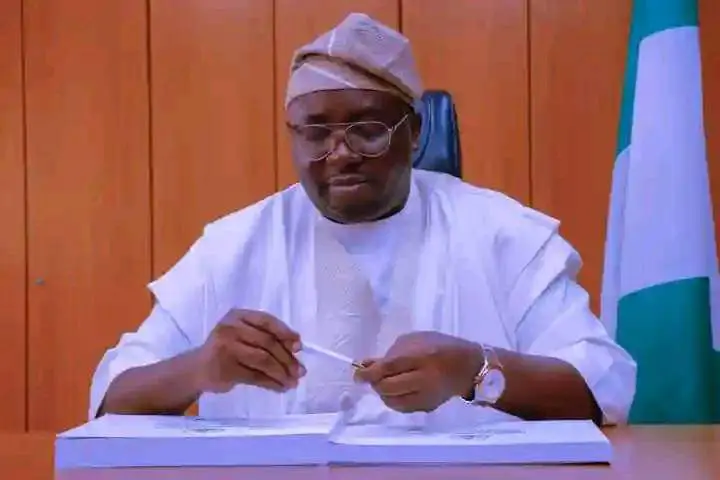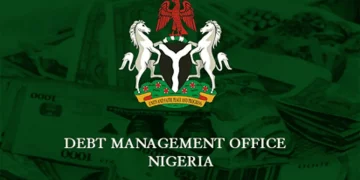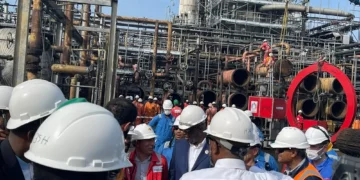Minister of Power, Adebayo Adelabu, has maintained his stance that previous Nigerian administrations failed to make tangible progress in the power sector, particularly with the much-heralded Siemens Project, until the advent of the Bola Tinubu administration. Adelabu emphasised that it was only after President Tinubu assumed office in May 2023 that the Presidential Power Initiative (PPI), also known as the Siemens deal, gained real momentum.
Adelabu did not mince words in his assessment of the sector’s history, blaming decades of neglect and a lack of political will for the persistent challenges facing Nigeria’s electricity supply. “We actually have a past that we are not proud of. Over the years, we have only been paying lip service to transforming the power sector. We have not walked the talk. Previous administrations have kept on doing the same thing all the time and you cannot get different results for that, which is why we have decided to do things differently this time,” Adelabu speaking through his special adviser on Strategic Communications and Media Relations, Bolaji Tunji said.
Tinubu’s Leadership Accelerating Siemens Energy Project In Nigeria — Presidency
He pointed to the Siemens contract, signed in 2019 under the Buhari administration, as a prime example of stalled progress. “We entered into the Siemens contract in 2019. We never lifted a finger until 2023, when this government came on board. So you can now imagine since this President came in and now look at the mileage we have achieved,” he said.
Adelabu also highlighted the chronic underinvestment in critical infrastructure, noting that thousands of kilometres of transmission lines and hundreds of thousands of transformers had been left without proper maintenance, exacerbating the sector’s woes.
According to him, since President Tinubu’s inauguration, the PPI has seen a flurry of activity. The administration signed an Acceleration Agreement with Siemens Energy to fast-track the implementation of the project, focusing initially on modernising and upgrading the transmission subsector through a turnkey approach.
The distribution aspect, meanwhile, has been opened up to other reputable Engineering Procurement and Construction (EPC) companies with the technical and financial capacity to deliver.
He also noted that the Federal Executive Council approved €161.33 million for the Siemens Power Project in December 2024, underscoring the administration’s commitment to addressing transmission bottlenecks and stabilising the power sector. The first phase of the project involves upgrades to 14 substations and the construction of 21 new ones nationwide, with five—Onitsha, Offa, Abeokuta, Ayede, and Sokoto—prioritised for immediate attention.
Adelabu’s office outlined a series of achievements under the Tinubu administration, including: Installation and commissioning of ten power transformers and ten mobile substations across Nigeria in the pilot phase of the PPI, with equipment delivered in October 2023; Increased transmission wheeling capacity by over 700MW for industrial clusters, businesses, universities, and homes through several completed projects;
Market and regulatory reforms, such as the implementation of cost-reflective tariffs for Band A customers, which raised market revenue by N700 billion in 2024—a 70 per cent increase from the previous year; Establishment of the National Independent System Operator (NISO), marking the unbundling of the Transmission Company of Nigeria to strengthen governance and grid performance as well as Regulatory oversight transferred to 11 states, enhancing local control and accountability in the power sector.
Peak available generation rose to an all-time high of 6,003MW on March 4, 2025, with a new daily energy record of 128,370.75 MWh achieved the same day.
Adelabu further said the current administration has also launched the Presidential Metering Initiative (PMI), aiming to add two million meters annually to bridge the country’s metering gap. A N700 billion funding pool has been raised for this purpose, with procurement underway for the deployment of 1.1 million meters. The World Bank’s DISREP project is set to deliver 3.2 million additional meters, with the first batch of 75,000 already delivered and another 200,000 expected soon.
Also off-grid and interconnected solar mini-grid projects have been commissioned in several states, including Plateau, Cross River, Niger, and Osun, expanding access to clean power for rural communities. The government is also working to fully evacuate power from the Zungeru and Kashimbila hydropower plants, while new projects like the Makurdi hydropower and Kaduna thermal plants are under development.
Despite these strides, Adelabu acknowledged that significant challenges persist. The sector is burdened by a ₦4 trillion debt in outstanding subsidies, unsustainable tariff regimes, rampant vandalism, electricity theft, and chronic bill non-payment. Poor investment by some operators, especially in distribution infrastructure, and resistance to commercialisation by consumers continue to impact liquidity and service delivery.
Adelabu insists that the Tinubu administration is laying a solid foundation for long-term transformation in the power sector, with a focus on inclusivity, sustainability, and measurable results. He called on stakeholders and development partners to continue supporting the government’s efforts, emphasising that stable and efficient electricity supply is critical to Nigeria’s broader economic development.
“If the past administrations have been adding things like this, we will not be where we are today. And that is why I said that President Tinubu is actually laying the kind of foundation that we need for our country to grow,” Adelabu concluded.





